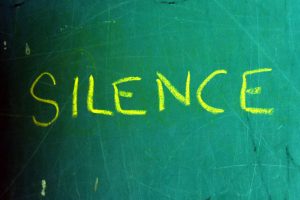Cohen Declares He’ll Take The Fifth, Stormy Has 24 Hours To Respond
 LOS ANGELES – In a declaration filed Wednesday in Stormy Daniels’ (AKA Stephanie Clifford) lawsuit challenging a nondisclosure agreement negotiated in 2016, Donald Trump’s embattled attorney Michael Cohen said he will assert his Fifth Amendment rights “in connection with all proceedings in this case due to the ongoing criminal investigation by the FBI and U.S. Attorney for the Southern District of New York.”
LOS ANGELES – In a declaration filed Wednesday in Stormy Daniels’ (AKA Stephanie Clifford) lawsuit challenging a nondisclosure agreement negotiated in 2016, Donald Trump’s embattled attorney Michael Cohen said he will assert his Fifth Amendment rights “in connection with all proceedings in this case due to the ongoing criminal investigation by the FBI and U.S. Attorney for the Southern District of New York.”
While Cohen’s attorneys had already stated in a request for Judge S. James Otero to stay the case that Cohen’s “Fifth Amendment rights may be adversely impacted” if Daniels’ case continues without pause, Cohen had not filed a declaration saying he would, in fact, assert his Fifth Amendment rights when testifying in the civil suit.
Daniels’ attorney Michael Avenatti previously noted the lack of such a declaration in his opposition to the requested stay, observing that the defense had offered “no declaration from Mr. Cohen or Mr. Trump, let alone a declaration establishing the existence of a criminal investigation, or the supposed relationship between the criminal investigation and the facts of this case.”
While the declaration filed by Cohen answers this portion of Avenatti’s opposition to the requested stay, it does not necessarily mean Judge Otero will grant Cohen’s motion. In his opposition to the stay, Avenatti also argued “even if Mr. Cohen’s Fifth Amendment rights were implicated, they have been waived.”
“He has filed two separate declarations in this case addressing the facts – with one of them being filed after the FBI raids,” Avenatti noted in his opposition to the stay. “This is in addition to the myriad public statements issued by Mr. Cohen, including a phone interview with Don Lemon of CNN occurring the day after the raids. Mr. Cohen made the choice to make these public statements with full knowledge of the raids; he cannot now refuse cross-examination.”
As noted by attorney Ken White, who blogged about a hearing held on Cohen’s motion to stay last week, Cohen isn’t the only one whose public behavior may have adversely impacted his in-court arguments.
“One of the factors in deciding whether to stay the case is whether the stay would prejudice Daniels’s interest,” White noted in his post. “How, asked Judge Otero, is Daniels prejudiced, when she’s repeatedly told her story on TV, and her lawyer has repeatedly been on TV to talk about the case? Hasn’t she necessarily ignored the alleged chilling effect of the contract?”
Now that Cohen has filed his declaration, Daniels has 24 hours to respond. In trying to read the tea leaves on Otero’s eventual ruling, White wrote that he suspects the judge will grant a limited stay, “not so much to preserve Cohen’s interests in the civil case, but to give his lawyers a reasonable amount of time to get a grip on what is going on and make longer-term decisions about how to deal with the civil case.”
“Judge Otero repeatedly noted that the criminal case could take a long time, but that it was reasonable for the lawyers to want to regroup to evaluate the situation and how to weigh Cohen’s interests in the two matters,” White added.
Meanwhile, in the criminal case pending against Cohen in New York, U.S. District Judge Kimba Wood has appointed an independent “special master” to review documents seized by law enforcement in raids of Cohen’s home, office and hotel room on April 9.
“The letters I received from counsel for Mr. Cohen and the intervenors has convinced me that this process can go quickly with the special master, assuming everyone works as hard as you have represented you will work,” Judge Wood said in issuing the order appointing the special master.













